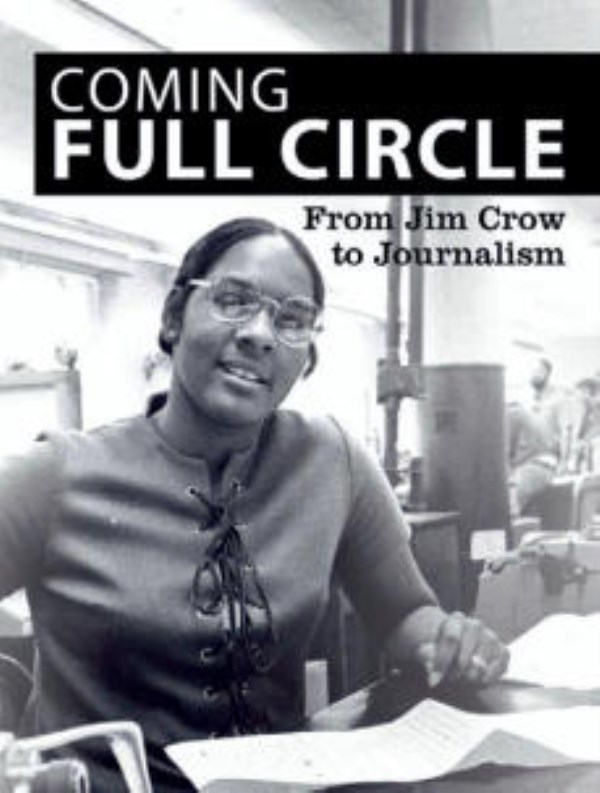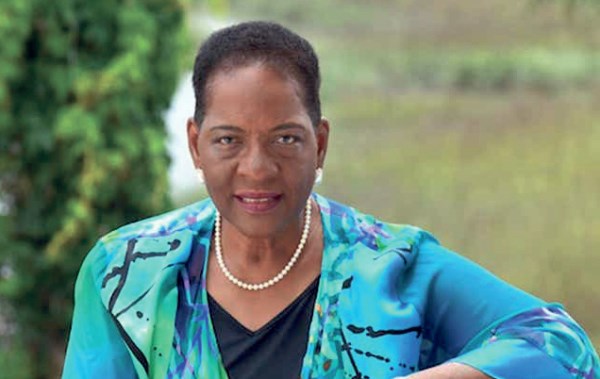Montgomery, Ala. (AP) – It’s hard to be anything but a leader when you can’t see someone to follow.
That’s the situation Wanda Smalls Lloyd found herself in as an aspiring journalist, a gifted young woman of color trying to be a part of daily newspapers that were dominated by white men. “I enjoyed telling stories. I enjoyed editing,” Lloyd said. “I enjoyed interviewing people and talking to people about what was going on in their lives.”
Lloyd, the author of “Coming Full Circle: Jim Crow to Journalism,” found her way into a career that lasted more than 40 years. Her new memoir is now released by NewSouth Books in Montgomery.
Longtime readers of the Montgomery Advertiser should remember Lloyd. She was the executive editor from 2004 until her retirement in 2013. Before that, she served as an editor for six other newspapers, including The Washington Post and USA Today.
Lloyd said she loved being able to witness growth in downtown Montgomery.
She was here during times of tragedy, such as when Hurricane Ivan struck just three months after she joined the Advertiser, and a year later for Hurricane Katrina. Lloyd remembers how the Advertiser’s staff and their families took refuge at the newspaper’s offices.
ALIVE BUT YOUNG
She also enjoyed some “pretty important” college football seasons for Alabama and Auburn. “I loved Montgomery,” said Lloyd, who lives in Savannah, Ga., now. “Greenville (S.C.) and Montgomery were probably my two favorite newsrooms. I felt very close to the community. I could feel like we were making an impact in the community.”

“It’s hard to be anything but a leader when you can’t see someone to follow.”
Her tenure at the Advertiser took place during special times to remember civil rights: the 50th anniversary of the Montgomery Bus Boycott, the death of icon Rosa Parks and the commemoration of the Freedom Riders. She recalls marches across the Edmund Pettus Bridge in Selma and meeting true foot soldiers of the movement such as John Lewis.
“It was an exciting time to learn a lot about the civil rights movement,” Lloyd said. “I was alive during the civil rights movement, but I was young.”
Lloyd returned last year to see a new addition to Montgomery’s history, Equal Justice Initiative’s National Memorial for Peace and Justice and the Legacy Museum.
“I had heard so many people who had never lived in Montgomery come back from all over the country talking about how moving and stirring that was,” Lloyd said.
JOURNALISM JOURNEY
Lloyd recalls that the first step toward her career began in an 11th grade Journalism class in Savannah. There, she demonstrated a natural ability that caught her teacher’s eye.

WANDA SMALLS LLOYD: No role model? No problem, just training, windows of opportunities, and transitions through “exciting times.” PHOTOS COURTESY OF AHEADTOPICS.COM, TWITTER AND FACEBOOK.COM
“She noticed that a lot of the other students would come to me for ideas,” Lloyd said. “That I was helping them craft their stories or think about sources to interview.”
Lloyd became editor in chief of her high school paper, The Beach Beacon, the following year, and would later become editor of the campus paper at Spelman College in Atlanta. They didn’t have a Journalism track, so she earned a degree in English.
“I was always nosy and wanted to know what was going on across the campus,” Lloyd said.
She had goals and chief among them was the desire to work for a major daily newspaper. But at the time, she had no idea how to do it.
“I did not know any African American or women journalists who worked for daily newspapers,” Lloyd said. “The black press had been around for a long time, and I was very familiar with the black press because that was kind of our lifeline, especially in the South, as to what was going on with the civil rights movement and other cultural things across the country.”
IN DEMAND
She found a window of opportunity through copy editing, where she thought she’d have less competition. Copy editors are journalists whose primary responsibilities include correcting grammar and spelling, ensuring writing style rules are followed and checking facts.
“I didn’t even know what a copy editor was,” she said. “I had taken a class in copy editing, but I wasn’t really sure what I was getting into.”
She trained and gained experience, and eventually got a job offer in Atlanta. But they didn’t want her to be a copy editor.“There was a lot of demand from the black community that they integrate the newsroom and have more African American reporters on the street to cover that community shortly after the civil rights movement,” Lloyd said.
“The person who interviewed me said, ‘We will hire you tomorrow as a reporter, but I can’t hire you as a copy editor because no one will know you’re here. You’ll be inside the building.”
She declined, and soon after took a copy editing job in Providence, RI.
“I have never been a full-time reporter for a daily newspaper,” Lloyd said.
MORE TRANSITIONS
Instead, she gradually transitioned through copy editing and page design at newspapers across the country. Her career started evolving more at the Washington Post.
“I didn’t become a middle manager until I left the Washington Post and went to USA Today,” she said. “That’s where my management track began.”
After retiring from newspapers, she spent three years as an associate professor and chair of the Savannah State University’s Department of Journalism and Mass Communications.
She’s currently a member of the accrediting committee of the Accrediting Council on Education for Journalism and Mass Communications (ACEJMC), and she serves on the executive council of AARP Georgia.
A Wanda Lloyd Scholarship has been established at Spelman College to support students interested in journalism.
Among her many accolades through the years, in 2019 Lloyd was inducted into the National Association of Black Journalists













No Comment